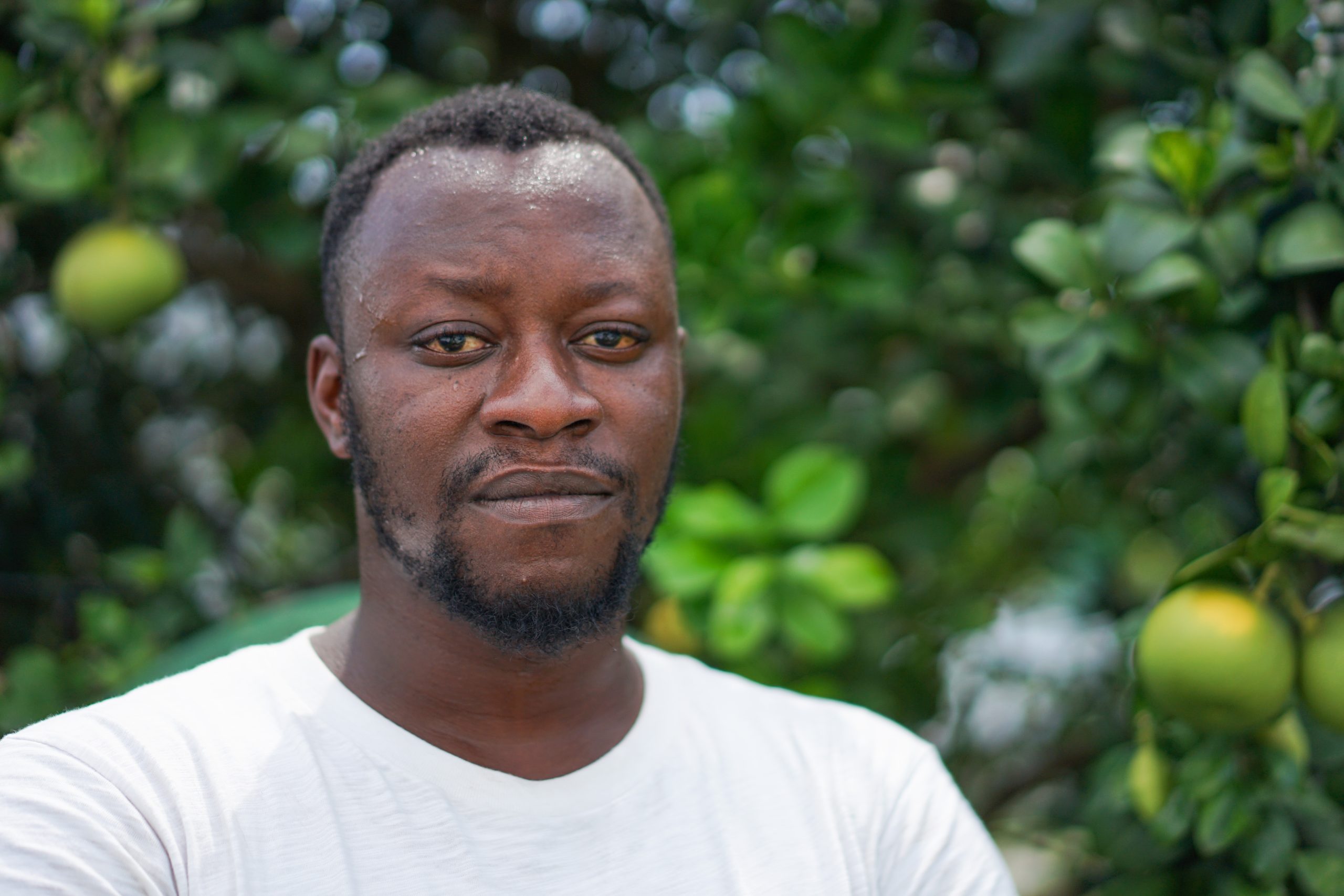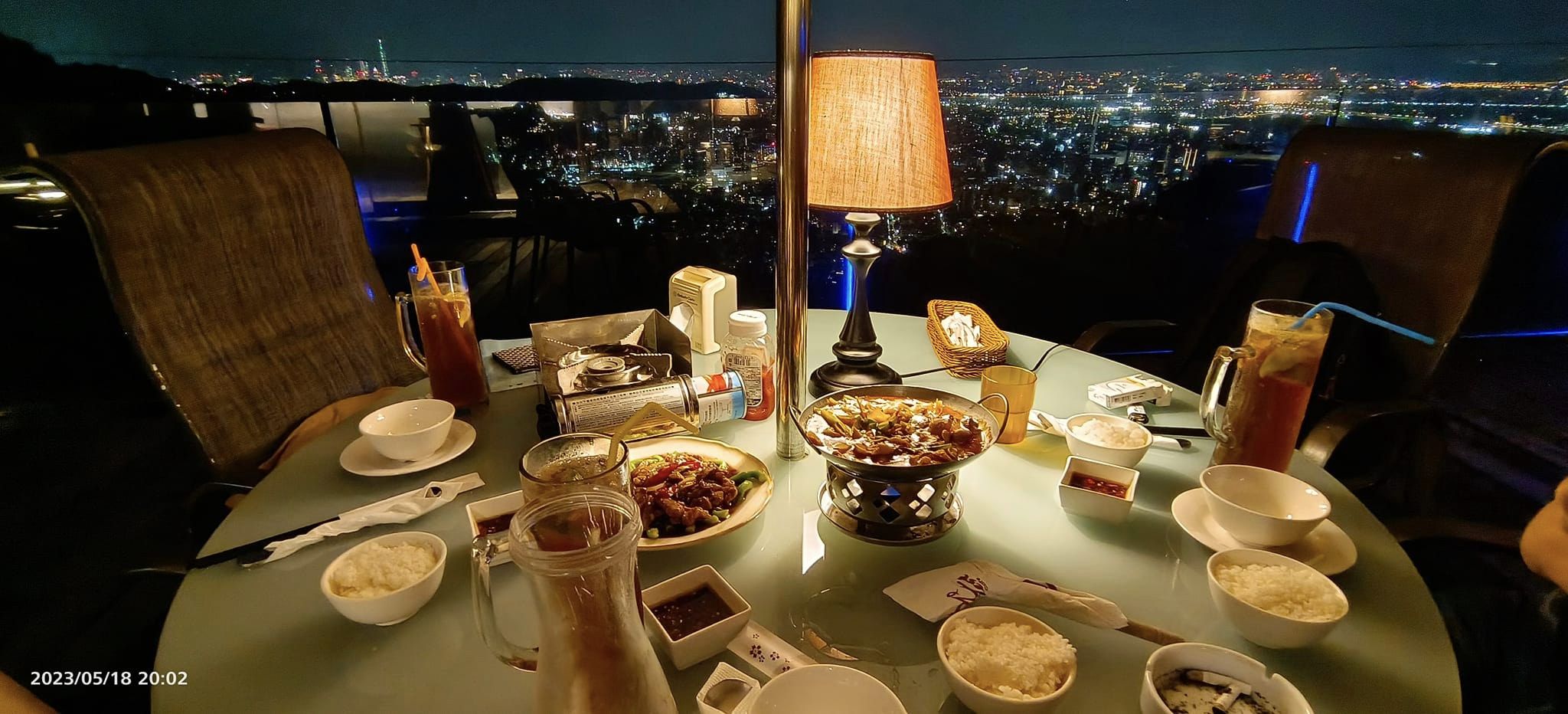Author Chris van Laak
Photographer Chris van Laak
In Tainan’s rural Rende District, between the Sun Yat-sen Freeway and a run-down park adorned with fake dinosaur skeletons that has become a gathering place for paintball enthusiasts, lies a small farm that looks as inconspicuous as its surroundings. At first sight, the crops that are growing here in small quantities look like the ordinary Taiwanese fare. They don’t reveal their story just yet.
It takes a visionary farmer and good storyteller to do the job, and Dami, who has been running Afro Garden Taiwan (阿福農場) since September last year, is both.
“This is yam, that’s cassava, and those are plantains. Over there we have Scotch bonnet peppers,” Dami says. “All of them are Nigerian staples.”
“The goats over there are Nubians,” he adds. “The breed [which is originally from the Horn of Africa] was introduced to Australia by the British, and from Australia they were imported to Taiwan for breeding.”
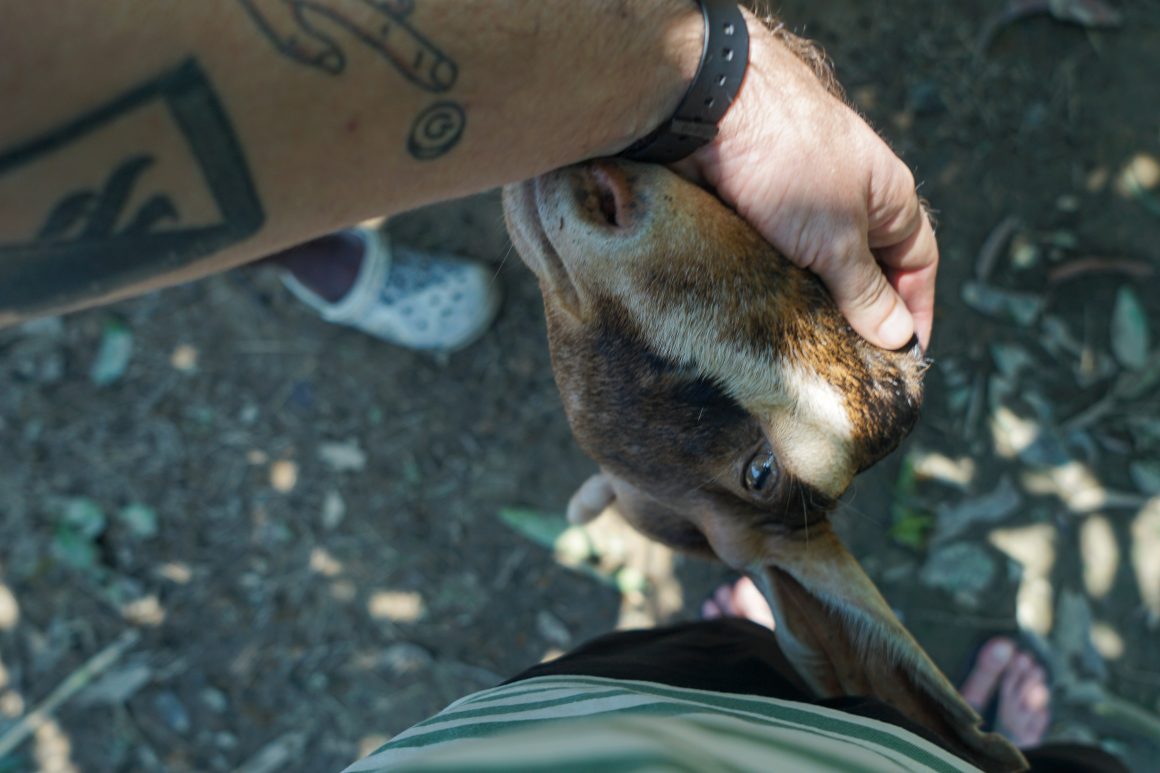
Some paths are indeed circuitous.
Dami has been in Taiwan since 2010, when he enrolled at Kun Shan University, as one of an increasing number of Africans seeking tertiary education in the country. During his studies, he met his future wife, which, unsurprisingly, made the decision easy to stay in Taiwan after he had finished his mechanical engineering degree.
Moving to a place far away from home is not uncommon in Dami’s family; his siblings are scattered around the globe—in Taiwan, England and Canada.
For the community
Dami worked at a Tainan-based company in the semiconductor supply chain until 2018, when he started his own business, initially focusing on exporting second-hand cars to Nigeria—a kind of business that’s quite common among African expats in Asia. (Those who have traveled in Africa and have seen children being bussed to school in vehicles sporting Chinese, Korean or Japanese lettering know that.)
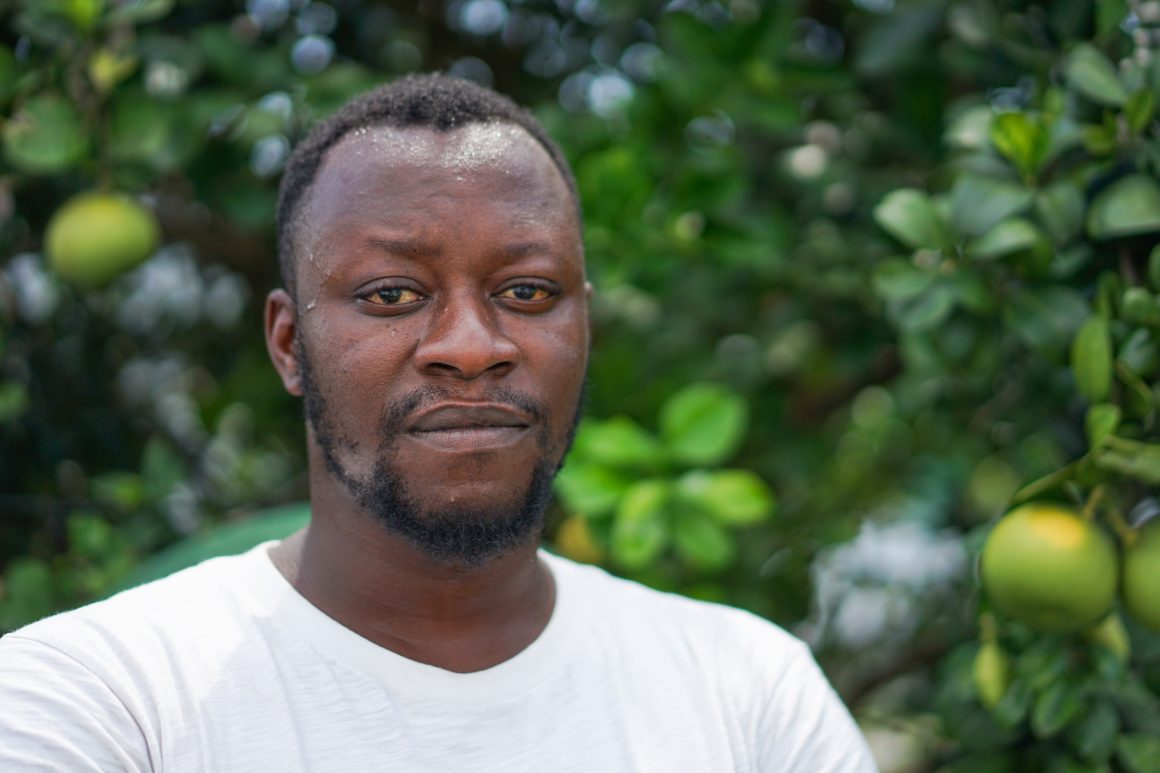
Importing goods from Nigeria has been Dami’s side gig since the beginning. For now, he does it “one container at a time,” Dami says, even though there’s a lot of potential for growth.
Dami estimates that about 20,000 Taiwan residents from Subsaharan Africa and the Caribbean are faced with the same challenge as him: How to get a steady supply of food products that help you recreate the taste of home?
At times, Dami—who employs seven others at his business, four Nigerians like him and three Taiwanese—does more than just help other expats get their hands on what their tastebuds are craving.
He hosts, for example, Nigerian suya-style barbecues at his farm. The events are semi-public for now, but in the future he might also host bigger events.
“I’m taking it slow, because what I’m doing is for the local community. I want to make sure nobody thinks we’re causing trouble for anyone,” he says.
Dami says there’s a sizable African community in southern Taiwan, including many Nigerians, many of whom work as engineers, like Dami used to do. Around a kilometer from his farm, about 100 students from Burundi and Uganda are also enrolled at Chang Jung Christian University.
For them, Dami’s suya-style barbecues, with beef skewers marinated in, among other ingredients, peanut butter, is also a new experience, but it hits close enough to home—in a good way.
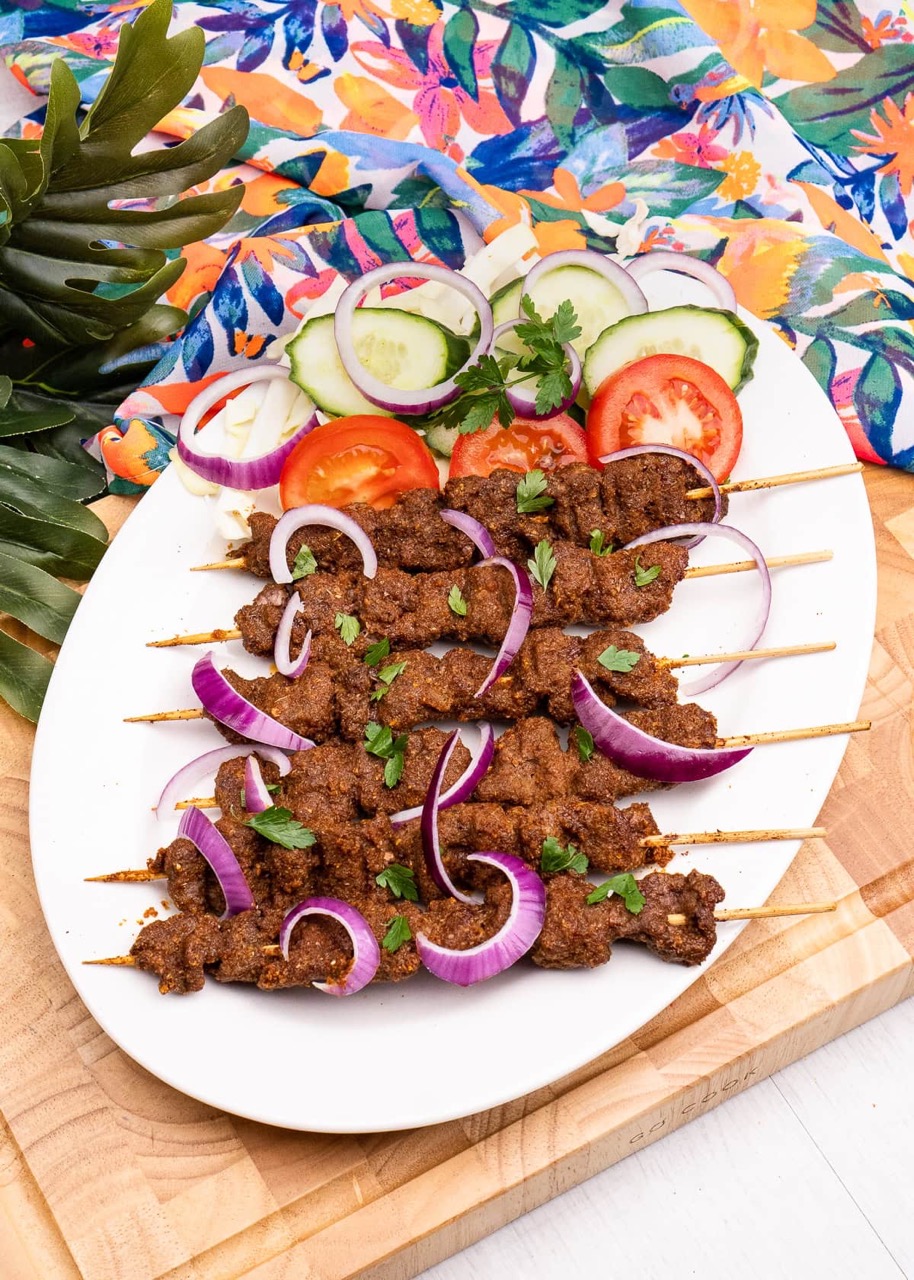
Back to the roots
At heart, he is a farmer though, a farmer who recognizes a business opportunities when he sees it.
His home region in western Nigeria, Oyo State, where his family owns 5,000 hectares of land, is famous for its cashew nuts. Taiwanese love those nuts, and Dami has started growing them on his farm, too, as one of only a few cashew farmers in Taiwan, which mostly relies on imports.
“That’s just for us and for experimentation though. To get our nuts into Taiwanese 7-Elevens, we’d need huge quantities,” he says.
In any case, Dami is planning to invest in processing equipment at his farm, alongside continuing investments into ambitious upgrades to his family’s farm back in Nigeria.
A direct link
Taiwan doesn’t allow the import of unprocessed cashew nuts. Most cashews sold at local convenience and grocery stores therefore come from Vietnam and India, where they are processed in quantities large enough for Taiwan’s big players. Where they were harvested is in many cases not so clear, as their labels only show where they are processed and packaged.
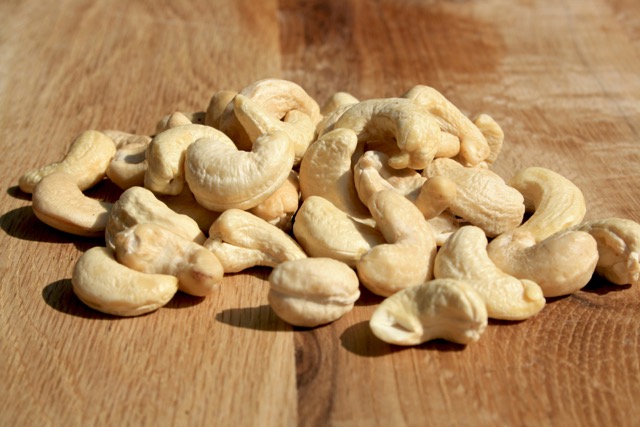
They might just come from Oyo State, Dami says, where farmers only get paid a fraction of what their nuts are worth on the international market.
It would be a dream to set up a direct supply chain between Nigeria and Taiwan that benefits both sides, with processing there, as required by the import regulations, and consumers here, Dami says.
Weathering Taiwan’s weather
On a Sunday morning when I visited Afro Garden Taiwan, Typhoon Gaemi had just dumped about 1,000mm of rain on the area. Traveling south by high-speed rail from Taipei, I had seen large swaths of farmland flooded or washed away.
Dami says he was lucky that his farm did not suffer losses in the typhoon. Still, being a farmer in Taiwan is not easy, especially if you’re trying to do new things, things that nobody in Taiwan has tried before.
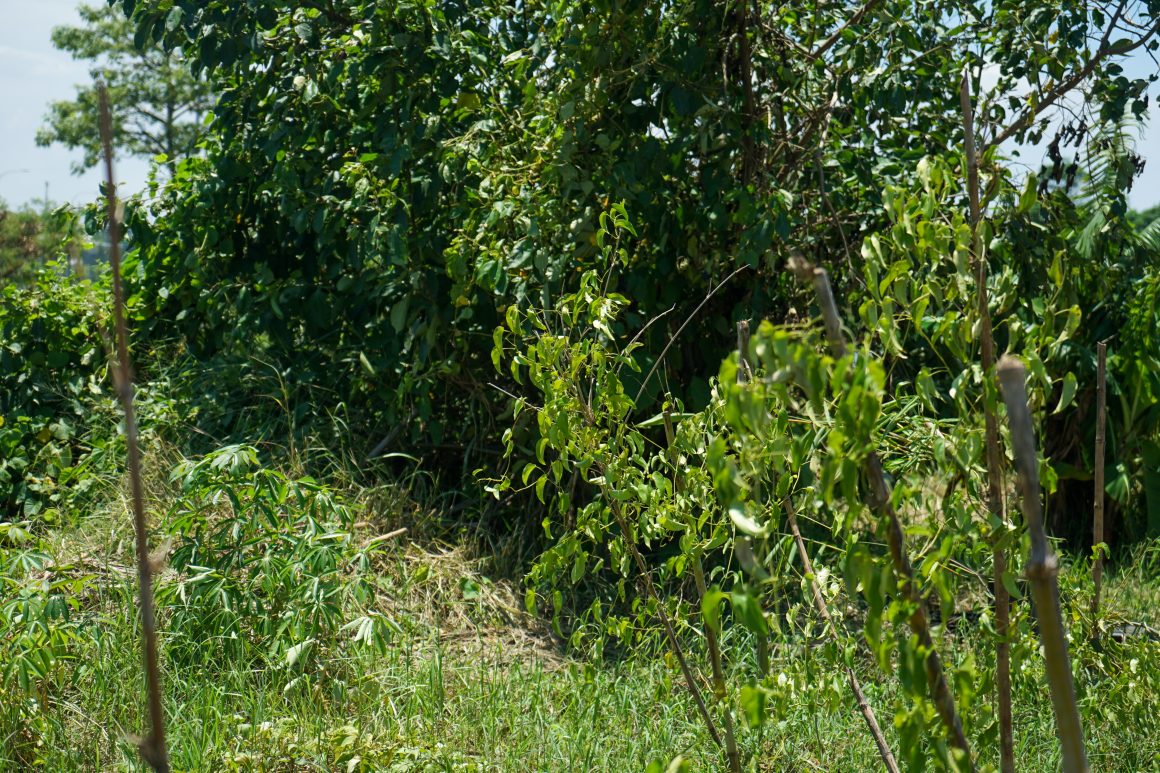
With his farming practices inspired by African traditions, he is, nevertheless, a vanguard of global sustainability trends.
For example, he practices “diverse crop planting,” which means growing different plants in close proximity, a technique that helps protect biodiversity and soil health. He also practices fine-tuned water management, and adheres to principles that the marketing departments of big agriculture brands would call “circular farming.” For Dami, however, it’s simply how it’s supposed to be done.
Dami knows some experiments will not work out as planned, but that’s ok for someone who’s a fountain of ideas.
“Nothing good comes easy,” Dami said as we were sitting in the shade drinking ice-cold zobo, a Nigerian beverage made from dried Hibiscus petals and a mix of spices. Now that the rain was gone, it was sweltering hot.
“Where does it get hotter, here in Tainan or in Oyo State?” I asked.
He smiled and said: “Today I feel like here in Tainan.”

